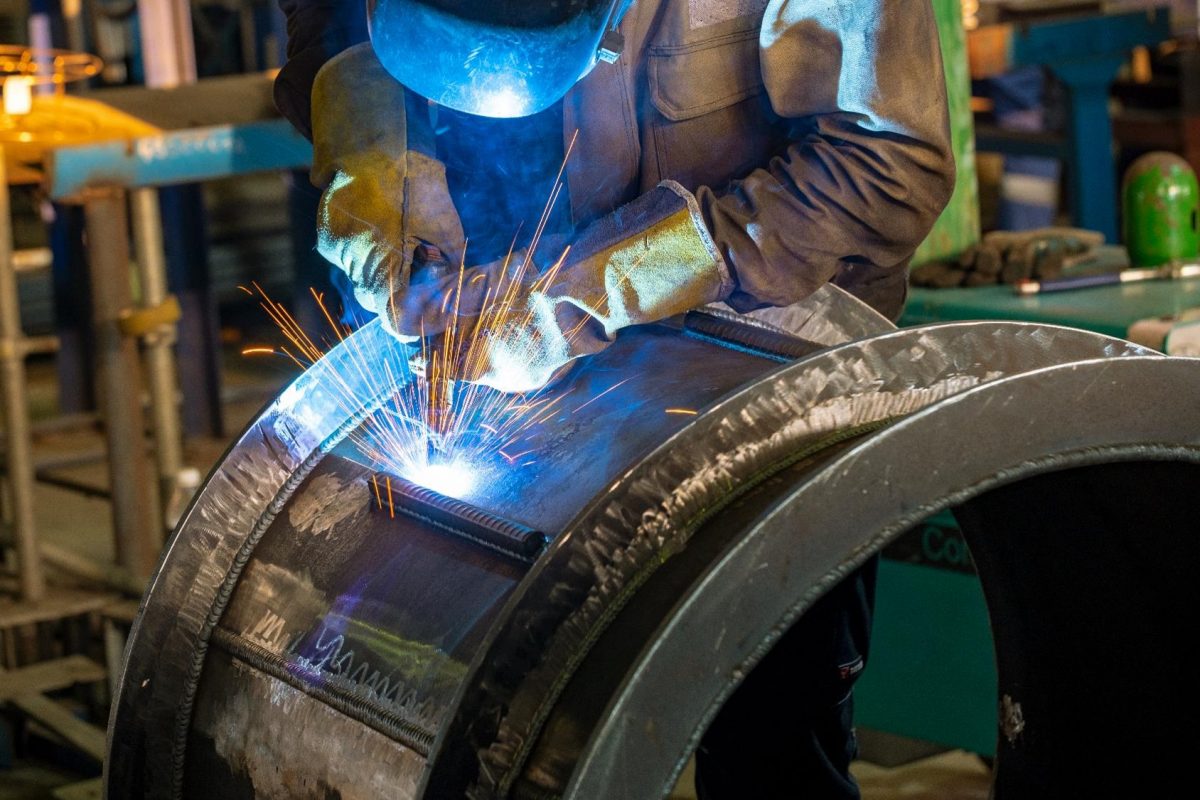Weld spatter observed as droplets coming off the weld pool
Fabricating metal structures is complex work that involves various processes and techniques. One method utilised in structural fabrication is flux-cored arc welding, also known as FCAW. Among the different types of welding, FCAW is an automatic or semi-automatic electric arc welding process that uses filler wire as an electrode for the arc. It is similar to Gas Metal Arc Welding (commonly known as MIG welding) and sometimes uses the same equipment, but the filler wire is what makes FCAW different.
The filler wire in FCAW is hollowed out and filled with flux, and instead of solely relying on shielding gas for protection, the flux shields the weld pool and coats the entire weld. This coating allows the weld to cool more slowly, creating a stronger and more stable metallic fusion. FCAW is ideal for welding dense sections that are an inch thick or more because it has a high weld metal deposition rate and offers great penetration. FCAW also typically results in less weld defects, especially weld spatter, which can be costly to clean up and correct.
FCAW is commonly used on mild steel. It can be applied in steel hardfacing and cladding. It can also be used on carbon steel, cast iron, and sheet steel spot welding. This process is relevant in manufacturing and industrial projects, pipeline welding, underwater welding, shipbuilding, and general repairs.
FCAW is typically more expensive than common welding consumables such as solid-wire due to the mineral compounds and powdered metals found in the flux. The equipment is also more pricey than those used for other welding processes such as MIG and Shielded Metal Arc Welding (commonly known as stick welding). However, the initial capital cost is compensated for by higher-quality results, requiring less post-welding processes. It causes minimal spatter, giving a cleaner weld that is stronger with less imperfections. It doesn’t require extra handling time, therefore reducing operational and potential OH&S risks. In the long run, there will be minor expenses incurred to address defects and rework.

Cross Section of Flux Core Wire – figure 10-58(1)
For welders, FCAW is considered quite simple and easy to learn but difficult to perfect, particularly for onsite conditions. Challenges will be present in the process, as with learning any new skill or tool, but having proper guidance will result in highly sought-after skills and a good end-product.
With our AS/NZS ISO 3834 certification, you can trust Master Steel to deliver end-to-end services and innovative solutions to your steel requirements. We deliver projects successfully across timeliness, financial, quality, and safety metrics so that our customers can have operational security and receive consistently high performance. We believe in the agility of steel – delivering above and beyond our customer’s expectations. Call Master Steel on 07 5594 7944 or email us at engineering@mastersteel.com.au.

